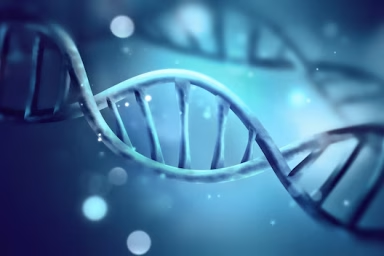- Home
- About Us
- Services
- Treatments
- Acid Reflux
- Allergic Rhinitis
- Alcoholic Fatty Liver
- Ankylosing Spondylitis
- Anxiety / Stress
- Arthritis
- Asthma
- Cervical Spondylitis
- Celiac Infection
- Colitis
- Constipation
- Dermatitis
- Detox Programme
- Diabetes (Madhumeha)
- Hair Fall
- Headache
- Hormonal Imbalance
- Hypertension
- Insomnia
- Irritable Bowel Syndrome
- Lungs Disease
- Migraine
- Neurological Disorder
- Non Alcoholic Fatty Liver
- Obesity Management
- Pain Management
- PCOD
- PCOS
- Sciatica Pain
- Sinusitis
- Skin Disorder
- Slip Disc
- Stress Management
- Thyroid
- Weight Management
- Techno-Ayurveda
- Media
- Blog
- Contact Us

PCOS
Understanding PCOS
In Ayurveda, PCOS is seen as a manifestation of a deeper imbalance in the body. The primary factors contributing to this condition include:
1. Imbalance in the Doshas
- Kapha Dosha: An aggravated Kapha dosha, characterized by excess mucus, fat, and water retention, contributes to weight gain, fluid retention, and sluggish metabolism, all of which are commonly seen in PCOS.
- Pitta Dosha: Pitta imbalances, characterized by heat and inflammation, can lead to conditions like acne, oily skin, and hair loss, which are common in women with PCOS.
- Vata Dosha: Vata imbalances can lead to irregular periods, digestive issues, and stress, all of which can contribute to the hormonal imbalances seen in PCOS.
2. Impaired Agni (Digestive Fire)
According to Ayurveda, Agni (digestive fire) is central to health. When Agni is weak or impaired, it leads to improper digestion, which results in the accumulation of toxins (ama). This impaired digestion can affect hormone production, leading to symptoms of PCOS such as irregular periods and the formation of cysts.
3. Srotas (Channels) Blockage
The Ayurvedic concept of Srotas refers to the body’s channels, including the circulatory, lymphatic, and reproductive systems. When these channels become blocked or clogged due to toxins (ama), it can hinder the smooth flow of bodily functions and lead to conditions like PCOS. Blocked reproductive channels can result in the formation of ovarian cysts, menstrual irregularities, and other PCOS symptoms.
Symptoms of PCOS
1. Excess Facial or Body Hair
2. Acne
3. Weight Gain or Difficulty Losing Weight
4. Thinning Hair on The Scalp (Androgenic Alopecia)
5. Darkening of Skin in Certain Areas (Acanthosis Nigricans)
6. Difficulty Getting Pregnant (Due to Irregular Ovulation)
7. Insulin Resistance and Elevated Blood Sugar Levels May Also be Associated with PCOS
Common Causes of PCOS

Genetic
Genetics plays a key role in PCOS, with family history increasing the risk. Specific genes affecting insulin resistance, androgen production, and ovarian function may be inherited, leading to hormonal imbalances, irregular periods, and other symptoms associated with the condition.

Insulin Resistance
Insulin resistance is a major cause of PCOS, where the body’s cells become less responsive to insulin. This leads to higher insulin levels, which stimulate the ovaries to produce excess androgens, contributing to symptoms like irregular periods and infertility.

Hormonal Imbalance
Hormonal imbalance is a key cause of PCOS, where elevated levels of androgens (male hormones) and disrupted estrogen and progesterone levels interfere with ovulation. This leads to irregular periods, cyst formation in ovaries, and symptoms like acne and hirsutism.

Lifestyle Factors
Lifestyle factors such as poor diet, lack of exercise, and high stress levels can contribute to PCOS. Unhealthy habits may lead to insulin resistance, weight gain, and hormonal imbalances, all of which exacerbate the symptoms and progression of PCOS.
FAQs of PCOS
Polycystic Ovary Syndrome (PCOS) is a hormonal disorder that affects women of reproductive age. It is characterized by irregular menstrual cycles, excess androgen (male hormone) levels, and the presence of cysts in the ovaries. The exact cause of PCOS is not fully understood, but it is believed to result from a combination of genetic factors, insulin resistance, and an imbalance in hormone production. High levels of insulin can cause the ovaries to produce more androgen, which can interfere with normal ovulation.
The symptoms of PCOS vary but commonly include:
- Irregular or missed periods
- Excess hair growth on the face, chest, or abdomen (hirsutism)
- Acne or oily skin
- Thinning hair or male-pattern baldness
- Weight gain or difficulty losing weight
- Ovarian cysts visible on an ultrasound
- Infertility or difficulty getting pregnant Other symptoms may include mood swings, depression, and sleep disturbances.
PCOS is diagnosed based on a combination of medical history, physical examination, and diagnostic tests. A doctor may perform:
- Ultrasound: To detect cysts in the ovaries.
- Blood tests: To check hormone levels, including androgen and insulin levels.
- Physical exam: To assess signs such as excessive hair growth, acne, and weight gain. A diagnosis is typically made if at least two of the following criteria are met: irregular periods, excess androgen levels, and cysts in the ovaries.
Currently, there is no cure for PCOS, but the condition can be managed effectively with lifestyle changes, medication, and sometimes surgery. Managing symptoms through a healthy diet, regular exercise, stress reduction, and medications (such as birth control pills, anti-androgens, or insulin-sensitizing drugs) can help regulate menstrual cycles, reduce excessive hair growth, and improve fertility. Ayurveda and other holistic treatments may also help balance hormones and improve overall well-being.
